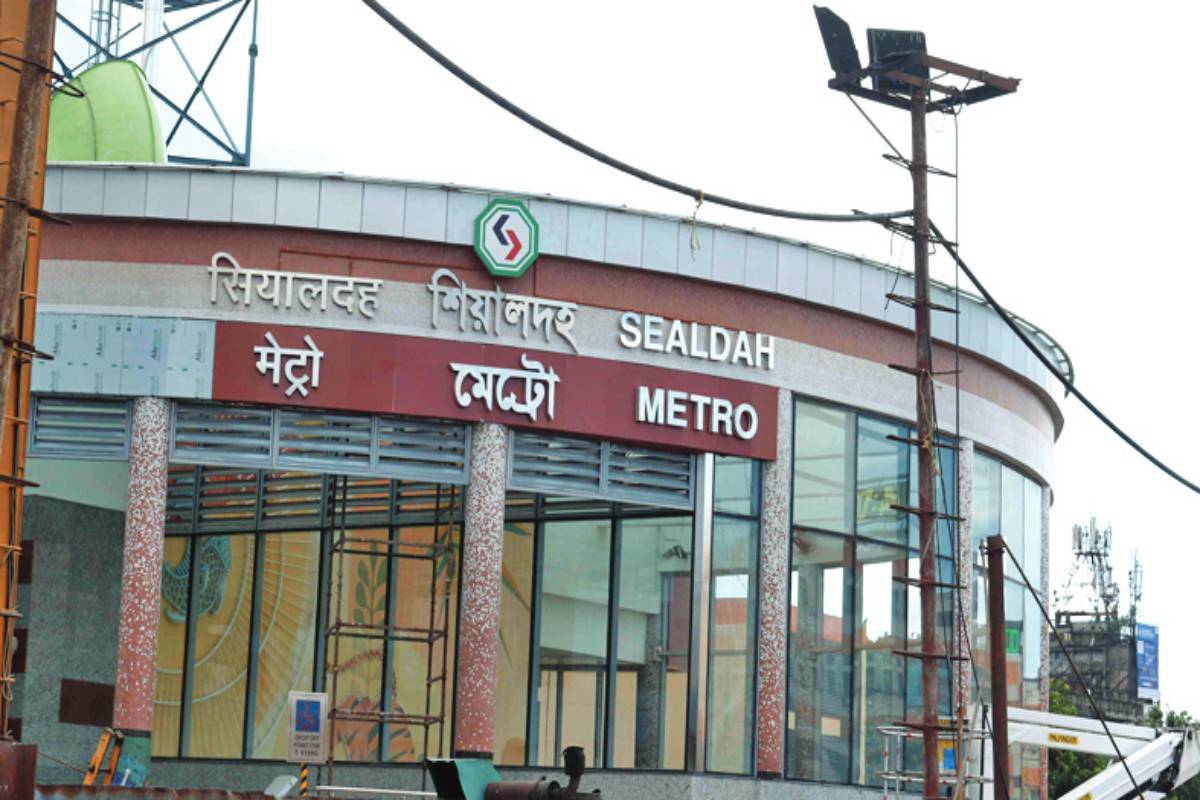Handling a mammoth daily footfall of more than 15 lakh, Sealdah station is also emerging as an environmentally sustainable station. With the help of an efficient water conservation system in the form of installation of sewerage treatment plants, the station is saving Rs 46,939 per year on per lakh litre of water.
According to official sources, the total water requirement for coach washing is 904 kilo litres per day (KLD). To mitigate the water requirement for coach washing, Sealdah station has installed an effluent treatment plant (ETP) cum water reclamation plant (WRP) capacity of 700 KLD that generates around 77.43 per cent of the required water for coach washing. Likewise, the total requirement of water for the station and yard is 36,30,485 litres. The station generates around 1,600 KLD of the reuse-able wastewater providing 43 per cent of the total requirement with the help of the STP of 700 KLD.
Advertisement
The station also has water meters installed in the inlet and delivery line of the underground reservoir tank which receives water from 2.5 MGD capacity Ganga water treatment plant at Tala, and supplies water to station premises. So, the station is using treated water for his daily consumption. For rain water harvesting, the station has six points with 2.5 KL capacity, each of which can capture 1,46,235.6 litre per month and 4,874.518 litre per day of rain water at peak month rainfall.
“The measures of sustainability are not implemented only in terms of water conservation but energy savings as well,” according to official sources. “With the help of energy efficient fixture installations, the station saves around Rs 35 lakh per year and Rs one crore approximately in three years. Two units of solar water heating system 500 litre per day capacity on the rooftop of the new building in Sealdah railway station have been installed to cater to the water requirement of 1000 litres out of the total requirement of 1800 litres per day,” informed the official. “To reduce heat out of the 1,732 sqm non-roof area, 920 sqm area covered by paver blocks and the area covered by tree canopies is 470 sqm. This confirms that the total of 80.25 per cent of the total site plan indicates the areas covered by tree canopy, landscaping, and interlocking tiles,” he added.
According to the divisional railway manager of Sealdah, Deepak Nigam, efforts are being made by the railways to transform the station into one of the smart stations of the country. “For this, eight smart facilities have been implemented at the station including WiFi, automatic ticket vending machine, smart card, CCTV surveillance at station for safety and security, prepaid taxi services, shopping area, food court, spa, saloon and meditation centre and play zone,” informed Mr Nigam. “The station also has 2,685 seats across 21 platforms that range from 40 to 285 seats per platform. The station meets the NSG1 standard of 150 seats per platform on 10 out of 21 platforms,” he added.
The station has already bagged the gold certification under the IGBC’s Green Railway Stations rating system. The team headed by Prithwish Halder/ DEnHM of Sealdah is now aiming for the platinum rating for the station.











